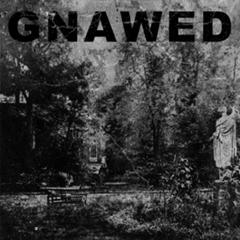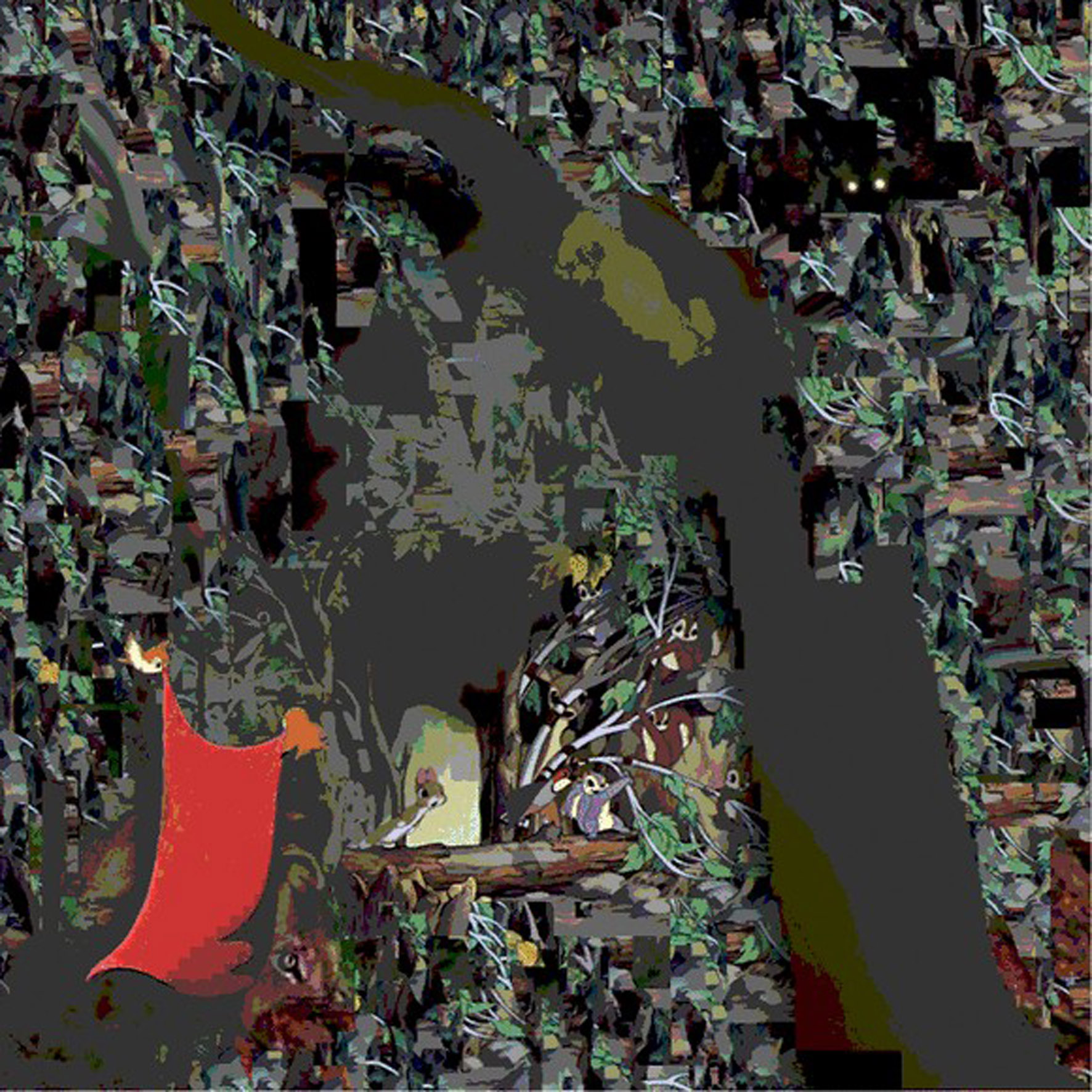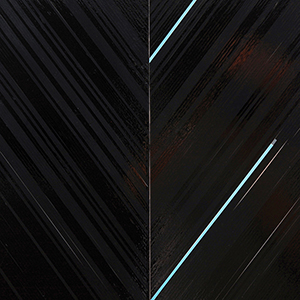 Chilean by way of Brooklyn artist Joao Da Silva has been quietly building an impressive discography of droning guitar electronics that can vacillate significantly between dark terrors and bright, shimmering expanses of sound. These two new limited tapes (one a split release with La Mancha Del Pecado) provide an exceptional overview of his widely varying, yet consistently excellent music.
Chilean by way of Brooklyn artist Joao Da Silva has been quietly building an impressive discography of droning guitar electronics that can vacillate significantly between dark terrors and bright, shimmering expanses of sound. These two new limited tapes (one a split release with La Mancha Del Pecado) provide an exceptional overview of his widely varying, yet consistently excellent music.
Two new shows just for you. We have squeezed out two extended release episodes for this weekend to get you through this week. They contain mostly new songs but there's also new issues from the vaults. The first show features music from Rider/Horse, Mint Field, Robert Aiki Aubrey Lowe, Anastasia Coope, ISAN, Stone Music, La Securite, Bark Psychosis, Jon Rose, Master Wilburn Burchette, Umberto, Wand, Tim Koh, Sun An, and Memory Drawings. The second episode has music by Laibach, Melt-Banana, Chuck Johnson, X, K. Yoshimatsu, Dorothy Carter, Pavel Milyakov, Violence Gratuite, Mark Templeton, Dummy, Endon, body / negative, Midwife, Alberto Boccardi, Divine. Cow in Maui from Veronika in Vienna. Get involved: subscribe, review, rate, share with your friends, send images! |




 I am not an especially devout Scott Walker fan, as I tend to admire his vision and fearlessness far more than I actually enjoy listening to his albums, but I was definitely very curious to hear how this completely unexpected collaboration would turn out: such a union seemed certain to be both unpredictable and unique at the very least.  Upon finally hearing Soused, however, I am a bit surprised by the early wave of stellar reviews it has received thus far, as it seems like Sunn O)))'s presence is often unnecessary or squandered (or both).  Walker, for his part, certainly provides more of the quavering, deranged catharsis that I have grown to expect from him, but the underlying music is sometimes less than compelling. Although not a failure by any means (it gets much better near the end), much of this effort feels like less than the sum of its parts (though it is still an absolute monster by non-"Scott Walker" standards).
I am not an especially devout Scott Walker fan, as I tend to admire his vision and fearlessness far more than I actually enjoy listening to his albums, but I was definitely very curious to hear how this completely unexpected collaboration would turn out: such a union seemed certain to be both unpredictable and unique at the very least.  Upon finally hearing Soused, however, I am a bit surprised by the early wave of stellar reviews it has received thus far, as it seems like Sunn O)))'s presence is often unnecessary or squandered (or both).  Walker, for his part, certainly provides more of the quavering, deranged catharsis that I have grown to expect from him, but the underlying music is sometimes less than compelling. Although not a failure by any means (it gets much better near the end), much of this effort feels like less than the sum of its parts (though it is still an absolute monster by non-"Scott Walker" standards). Minnesota's Grant Richardson may be a relatively new player in the American harsh electronics scene, but his expanding discography of tapes and low-run releases have honed his ability and skill at making ugly noise. With Gnawed taking cues equally from the European Cold Meat Industries sound and the contemporary US noise scene, Feign and Cloak is a heavy, yet diverse record that certainly brings power and force, but a lot more as well.
Minnesota's Grant Richardson may be a relatively new player in the American harsh electronics scene, but his expanding discography of tapes and low-run releases have honed his ability and skill at making ugly noise. With Gnawed taking cues equally from the European Cold Meat Industries sound and the contemporary US noise scene, Feign and Cloak is a heavy, yet diverse record that certainly brings power and force, but a lot more as well. Working with the themes of memory and forgetting, as well as the role of attention in listening, Cluett's latest work is highly conceptual.  Forms of Forgetting is a lengthy droning work where Cluett toys with these themes from a sonic perspective, sometimes hypnotic and sometimes drifting off into silence.  Passages are quiet and hushed enough to be ignored, just to come back with an undeniable force and intensity that cannot be forgotten.
Working with the themes of memory and forgetting, as well as the role of attention in listening, Cluett's latest work is highly conceptual.  Forms of Forgetting is a lengthy droning work where Cluett toys with these themes from a sonic perspective, sometimes hypnotic and sometimes drifting off into silence.  Passages are quiet and hushed enough to be ignored, just to come back with an undeniable force and intensity that cannot be forgotten. Lovingly curated and compiled by Zbigniew Karkowski’s frequent collaborator and friend Francisco Lopez, No Bullshit is an appropriately titled and presented tribute.  A data DVD containing over five hours of uncompressed audio from 67 well known (and not so well known) artists working with Karkowski’s source material, huge names from both the worlds of harsh noise and the avant garde (genres his work straddled well) appear to pay their tributes.
Lovingly curated and compiled by Zbigniew Karkowski’s frequent collaborator and friend Francisco Lopez, No Bullshit is an appropriately titled and presented tribute.  A data DVD containing over five hours of uncompressed audio from 67 well known (and not so well known) artists working with Karkowski’s source material, huge names from both the worlds of harsh noise and the avant garde (genres his work straddled well) appear to pay their tributes. Between 1989 and 1995, Rudolf Eb.er (Runzelstirn & Gurgelstock) and Joke Lanz (Sudden Infant) had a monthly radio show for Switzerland’s 104.5 FM station. Titled Psychic Rally Transmission, each show was an improvised live performance, mixing found tapes, random household instruments and other items, that helped to define the then-nascent Schimpfluch-Gruppe. Aggressive industrial, punky outbursts, and a healthy dose of absurdity pepper the ten complete shows presented in this box.
Between 1989 and 1995, Rudolf Eb.er (Runzelstirn & Gurgelstock) and Joke Lanz (Sudden Infant) had a monthly radio show for Switzerland’s 104.5 FM station. Titled Psychic Rally Transmission, each show was an improvised live performance, mixing found tapes, random household instruments and other items, that helped to define the then-nascent Schimpfluch-Gruppe. Aggressive industrial, punky outbursts, and a healthy dose of absurdity pepper the ten complete shows presented in this box. This is the debut effort from the duo of Ensemble Economique's tirelessly prolific Brian Pyle and Je Suis Le Petit Chevalier's Félicia Atkinson and it is a great one.  Consisting of two very different long-form pieces, Naked Island offers up a beguiling and hallucinatory mélange of breathy spoken word, dreamy synth drones, clattering percussion workouts, blown-out shoegaze bliss, and spacey abstraction.
This is the debut effort from the duo of Ensemble Economique's tirelessly prolific Brian Pyle and Je Suis Le Petit Chevalier's Félicia Atkinson and it is a great one.  Consisting of two very different long-form pieces, Naked Island offers up a beguiling and hallucinatory mélange of breathy spoken word, dreamy synth drones, clattering percussion workouts, blown-out shoegaze bliss, and spacey abstraction. This is an unusual duo with an unusual pedigree, as Zeigler is a Philadelphia engineer best known for working with artists like Kurt Vile and The War on Drugs, while Lattimore is a harpist who has worked with all kinds of interesting folks in the past, ranging from Jarvis Cocker to Wrekmeister Harmonies.  Together, they create something that would have been perfectly at home on 2013's fascinating I Am The Center compilation…almost.  While Lattimore's rippling harp weaves a gently hallucinatory and dreamlike spell that veers close to both New Age and chamber music at times, Zeigler's well-placed guitar and synth coloration gives these four pieces a welcome heft and unpredictability.  Admittedly, the balance between pastoral and avant garde is not always quite optimal, but this is nevertheless a strong and distinctive debut.
This is an unusual duo with an unusual pedigree, as Zeigler is a Philadelphia engineer best known for working with artists like Kurt Vile and The War on Drugs, while Lattimore is a harpist who has worked with all kinds of interesting folks in the past, ranging from Jarvis Cocker to Wrekmeister Harmonies.  Together, they create something that would have been perfectly at home on 2013's fascinating I Am The Center compilation…almost.  While Lattimore's rippling harp weaves a gently hallucinatory and dreamlike spell that veers close to both New Age and chamber music at times, Zeigler's well-placed guitar and synth coloration gives these four pieces a welcome heft and unpredictability.  Admittedly, the balance between pastoral and avant garde is not always quite optimal, but this is nevertheless a strong and distinctive debut. As Terence Hannum's primary project Locrian continues its transition from a small drone project to a more diverse and recognizable behemoth on a large label, recording in major studios, Via Negativa thematically functions as a "remembering his roots" record. Recorded alone in his basement studio, the DIY ethos of his early days is obviously present, but the music is as professional as it comes.
As Terence Hannum's primary project Locrian continues its transition from a small drone project to a more diverse and recognizable behemoth on a large label, recording in major studios, Via Negativa thematically functions as a "remembering his roots" record. Recorded alone in his basement studio, the DIY ethos of his early days is obviously present, but the music is as professional as it comes.
